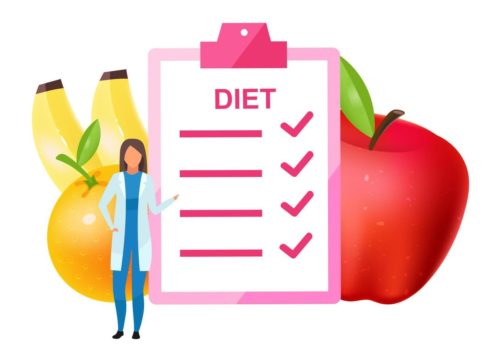
Contrary to common perception, just because a lady with more than 20,000 Instagram followers says she was able to successfully treat her PCOS by limiting dairy and gluten, doesn’t indicate that it will work for everyone. Because everyone of us is different, it’s not always possible to get the same outcomes from the same diet.
1-Metabolisms: There is no universal calorie amount because everyone’s caloric requirements differ.
2- food preferences: Any diet should aim to be as fun as possible while yet sustaining a healthy diet. A low-carb or ketogenic diet won’t be effective for vegetarians or vegans. However, if you enjoy eating meat, switching to a plant-based diet can be advantageous.
3- Activity levels: Compared to less active women, highly active women will likely need to eat more calories and carbohydrates. Therefore, following the advise to eat extremely little carbs and few calories is not the best course of action for her. In actuality, eating too few calories or carbohydrates might be harmful.
4- Insulin resistance levels: I generally find that you may need to pay more attention to your carbs and even calories the more insulin resistant you are.
5- Medical conditions: A person with diabetes or high cholesterol may require a different strategy than someone without these diseases.
6- Food sensitivities, allergies, and intolerances:
Many women claim that cutting out particular foods like gluten, dairy, and soy makes them feel better. A food sensitivity or intolerance may be the cause.
7- Genes: Each of us possesses a unique set of genes that influence how our body reacts to both drugs and nutrition.
8-Gut microbiome: This is the topic that interests me the most and clearly clarifies why there is never just ONE optimum diet for everyone. The tiny organisms in your gut microbiome are the cause of this.



